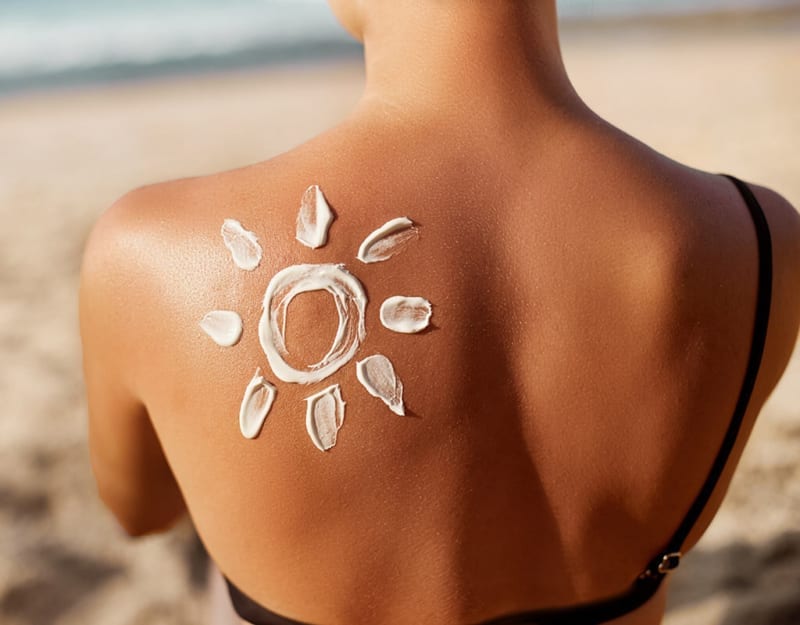As Zoolander said: “Moisture is the essence of wetness, and wetness is the essence of the beauty”. Well… he sort of had it right. Our skin needs moisture to maintain its healthy glow, but unfortunately our harsh southern sun can steal it all. Find out how to really care for and protect your skin during summer, to keep it looking healthy and youthful.
Do you know your type?
There are generally four types of skin: dry skin, normal skin, oily skin or combination skin. Skin type is hereditary and is determined by the amount of oil secreted by your skin. Your diet as well as other factors in the environment can all exacerbate your skin type as well, making dry skin inflamed or oily skin more blocked.
Identifying your own skin type and using the appropriate skin care for it will help maintain smooth, healthy skin in summer. Remember that your skin will have slightly different needs in summer than in winter, so you might need to use a lighter moisturiser. You can find honest reviews online, but make sure you’re getting them from people with the same type of skin as you, because cosmetics will have a different effect on different types.
Prepare
You might notice that your skin gets more oily in summer. That’s because the heat stimulates the skin’s oil glands, which can result in a vicious cycle of oiliness and dehydration, or a classic combination skin. Exfoliate at least once a week to improve the moisture absorption in your skin – the cream or gel you apply afterwards will reach the skin cells that need it, keeping them healthy. Exfoliating and hydrating the skin of your body is just as important, keeping your soft all over and even easing stretch marks.
Dehydration can be increased in summer by pollution, air-conditioning, stress and negative lifestyle habits. Ensure you drink at least eight glasses of water a day in summer: your skin will look clearer and glow! A good tip is to keep a bottle of water in your car – sitting in traffic is an ideal time to get through your required liquid intake and keep you hydrated in the summer heat.
Choosing the correct moisturiser will also help to keep your make-up looking fresh. If your skin is dehydrated or oil-dry, applying more day cream won’t solve the problem. You’ll need to exfoliate at least once a week and modify your moisturiser to one that is more suited to your skin type. After application, allow at least two minutes for absorption and then blot off the excess by pressing with a tissue, particularly in the T-zone.
All skin types can benefit from masks in summer; choose from a cleansing mask for detoxifying and a deep pore clean, or a moisturising mask which will increase hydration, softness and radiance – but will not make the skin oily. Try to repeat your exfoliation and mask treatment every weekend leading up to summer!
Protect
New Zealand has harsh summer sun, so it’s important that you protect your skin with SPF30 sunscreen every single day. It’s good to get into the habit, even if you aren’t planning to spend time in the sun. Without it, even quick outside trips in summer may damage your skin – whether you burn or not. Even if it’s overcast!
Limiting your time in the summer sun, especially during midday hours, is essential. If you want a glowing tan, your skin will thank you for faking it. And if you want some extra protection, take your vitamins and minerals. Not only do they keep your body and skin healthy from the inside, according to research, oral supplements of vitamin E and selenium, as well as topical applications of vitamins C and E, can give your sunscreen a boost by partially preventing the skin damage that occurs once you’ve been exposed. If you don’t like taking vitamins, try to eat foods rich in these vitamins and nutrients.
Foods to cleanse your skin from the inside out
- Fish contains oils that will help nourish your skin.
- Ground linseeds are an excellent source of omega-3 fatty acids, which promote good skin health.
- Vitamin A is essential for healthy skin. Eat plenty of dark orange (carrots, sweet potatoes) and dark green (broccoli, spinach) vegetables – all of which are high in vitamin A.
- Vitamin E helps promote good-looking skin. Nuts such as hazelnuts and almonds are high in vitamin E – and great as snacks.







Leave A Comment
You must be logged in to post a comment.